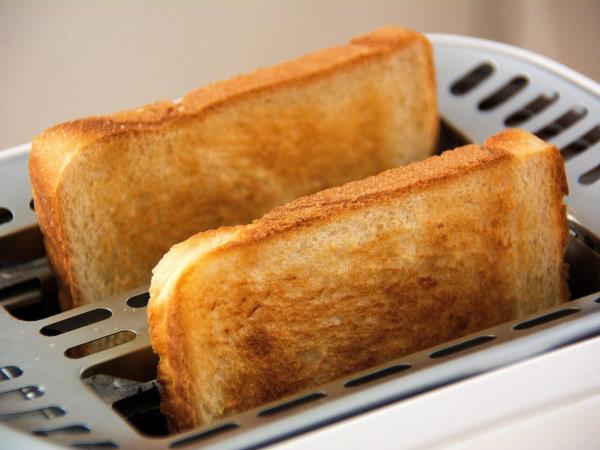Professor Robert Thomas, an oncologist and researcher from the United Kingdom, has warned that this substance is no joke. Acrylamide can damage the genetic material in our cells, namely DNA - and when such changes begin to occur in the body, the likelihood of developing cancer may increase.
In the United States, detailed research on acrylamide in food started in 2002. To date, various institutions, such as the Food and Drug Administration (FDA), have confirmed that this substance can affect the nervous system and even increase the risk of certain types of cancer. According to the European Food Safety Authority (EFSA) data from 2015, acrylamide is probably carcinogenic to humans.
And beware - this is not something that only occurs in toast. It is also prevalent in:
- baked potatoes (especially fried),
- crispy crackers,
- industrially baked cookies,
- breakfast cereals, and even in instant coffee.
World Health Organization estimates that as much as 99% of adults consume a certain amount of acrylamide daily - most of it coming from baked foods. What’s worse: children, being smaller and consuming more food per kilogram of body weight, are even more exposed.
Is the black edge of toast really that problematic?
Yes. The color is a good indicator of danger. The darker the bread, the more acrylamide it contains. If you notice that the edges are almost black, it's better to trim them off or toast them for less time. Our ancestors always baked bread slowly, over moderate heat. It wasn't just about taste, but also about health.
Let's be clear: daily consumption of toasted bread can increase the long-term risk of digestive, liver, and kidney cancers. Some studies indicate that acrylamide can also affect the nervous system and cause disorders such as tremors, poor memory, and fatigue.
Sweet jam - adding fuel to the fire
Now, onto another issue. Many people spread jam on their toast. Perhaps homemade, perhaps store-bought - but it almost always contains sugar.
According to the World Health Organization (WHO), adults should not consume more than 25 grams of free sugar per day (which is about 6 teaspoons), yet most people exceed this limit with just one breakfast. One tablespoon of jam can contain up to 10 grams of sugar - and many people spread it on thickly.
A study published in Nature Communications in 2023 showed that individuals with high sugar intake have a 44% higher risk of developing pancreatic cancer. Another study with 800,000 participants from 10 countries (EPIC study) proved a link between sugar consumption and colorectal cancer.
What to eat for breakfast then?
To live healthier, you don't have to eat anything exotic. Instead of jam, you can spread avocado on your toast. This fruit is packed with healthy fats that have a beneficial effect on the heart, lower bad cholesterol, and keep you full for longer.
Additionally, avocado contains over 20 different vitamins and minerals, including vitamin E, potassium, and magnesium. It also has compounds called carotenoids that protect cells from damage and inflammation.
Instead of bread, you can choose oatmeal with apple or blueberries, which is full of fiber. Fiber improves digestion, regulates blood sugar, and reduces the risk of colorectal cancer.
Oral hygiene and cancer - a surprising connection
Now, onto another often overlooked matter - brushing teeth. It may seem trivial, but more than 60 different studies worldwide have confirmed that poor oral hygiene increases the risk of oral cavity, throat, and esophageal cancer.
In a study led by Harvard Medical School, individuals with inflamed gums were found to be 74% more exposed to pancreatic cancer risk. Gum inflammation triggers a constant low-grade inflammatory response that can affect the entire body.
It is recommended to brush your teeth twice a day and also use dental floss to remove food residues that the brush cannot reach. You can further strengthen your gums by chewing sage leaves or rinsing with water soaked in chamomile or marigold - two ancient medicinal plants that have anti-inflammatory properties.
What did our ancestors say?
Although we often rely on science today, our grandparents and ancestors knew well what it meant not to overcook and not to be overly sweet. In the past, health care was something you carried with you every day - in a pocket with a dried apple and a habit of rinsing your mouth with sage tea before bed.
Folk medicine is not about magic - it's about observation, prudence, and trust in nature. Whether it's herbs, diet, or just the habit of starting the day with wholesome food instead of burnt bread.
In conclusion
Although it may seem like small things - like toast with jam - it is precisely from these habits that we build long-term health. And if replacing the black crust with fresh oats, and maybe adding an avocado occasionally, contributes to reducing the risk of diseases, why not give it a try?
For good health, we don't need expensive supplements - we mainly need awareness that every bite matters.









 Would you like to be informed about news on the website?
Would you like to be informed about news on the website?

